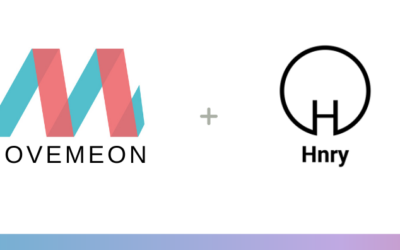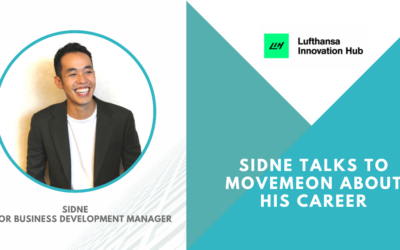Alex Pitt, Co-Founder of Mustard Seed shares his career journey and his experience of co-founding a VC fund.
—
Could you start by talking us through your career?
Consulting was a relatively short period of my career. It was 3.5, close to 4 years in total with Boston Consulting Group. I started out as an undergrad at the London School of Economics, which is where I met one of my closest friends and now my business partner, Henry Wigan. We met playing tennis just behind LSE on Lincoln’s Inn Fields. That was the seed for our friendship and our business partnership.
I started my career in investment banking, not because I thought it was the right career decision necessarily, but just that it was what everyone was doing. I jumped on the bandwagon – looking back, do I regret it? No, I don’t, but I think if I’d known about management consulting at undergraduate level, I would definitely have prioritised applying to the top consulting firms over investment banking. But I did meet some really interesting people and that Goldman Sachs network I was a part of does still raise its head in all sorts of different ways. I think the breadth of skill set in consulting would have been superior. Still, I was very fortunate to get an offer from Goldman Sachs. I applied to 20 banks or more at the time, and got rejected by almost all of them.
I spent a couple of years at Goldman Sachs. I realized quite quickly that I wasn’t cut out to be a banker. I don’t think I was very good at it. I didn’t really enjoy it all that much. Within about a year, I started thinking about what I wanted to do next. I didn’t really know – I think I’m still inching towards what I really want to do now. But back then, I didn’t have a clue. I thought business school was a good way to experience people who’d worked in all sorts of different areas. I’d always wanted to live and work in the US so I thought, “why not apply to a couple of top US business schools?” because the concept of an MBA was born in the States. And I was extremely fortunate to get accepted to Stanford and had an amazing couple of years there.
That was really a very transformative time in my life. I met my wife, Alyson, during my time there. She was, and hopefully will be again soon now that the boys are a bit older, a neonatal intensive nurse. My Stanford friendships and my LSE friendships have been real pillars in my career. I love this confluence of networks. I grew up with this perception that your personal and professional networks were completely separate things, and it just becomes more and more apparent to me every day that they are completely overlapping. There’s huge value in every conversation I have with friends and colleagues as I get more experienced in my career. Much of it is also about soul searching and practical tips on career progression.
I had an amazing two years at Stanford but I wasn’t really sure what I wanted to do. Now I’m obviously an entrepreneur but back then, I didn’t really have that at the front and centre of my mind. I was quite young when I went to business school. I guess I was still in that phase of career building blocks, for better or worse. I thought, management consulting, working for one of the top firms, would be a great building block for my career in terms of what I learned and who I met. That who part of it was really important if I was to be guided by them in business. I wanted to have people I could be inspired by and who were great to work with. Frankly, I think that’s where I’ve got it wrong in my career before: I made that judgment poorly and thought someone was going to be great to work with, but they didn’t turn out to be quite so good.
I was quite keen to stay in the US after I graduated from Stanford. I’d done a summer internship with BCG in Chicago, and I had an offer to join them permanently there, but I actually moved my offer from Chicago to New York and joined them full-time there. And that was great fun. It was really good, joining BCG post business school, especially in New York. A bigger office exposed us to all sorts of different projects across different industries. We worked with Sony BMG on a marketing effectiveness study. We worked with United Nations in defining their country strategy. I also worked with Loblaw’s, a big retailer in Canada, and with Wrigley on whether they should get into chocolate instead of just making chewing gum. It was pretty wide-ranging, and really interesting. Then I had an opportunity just after Alyson and I got married towards the end of 2008 to move to the UAE, which was an adventure, and we thought it would be quite nice to start married life on neutral territory, somewhere new for both of us.
Really the intention was to go for a year, but we got to Dubai and thought it was pretty fun for this stage in our lives. We ended up staying for almost six years. At that time, in my early thirties, I was starting to think about doing something a bit more different – maybe a bit more interesting, maybe a bit more entrepreneurial. And quite accidentally, I was contacted by a former BCG partner who was creating a new group within Mubadala, which is now a very large Abu Dhabi sovereign wealth fund, but at the time was small; just being established. He was building a strategy and portfolio management team and it just all sounded really interesting.
I joined Mubadala, and spent 5.5 years in different roles and increasing seniority, always focused on driving change projects. I really enjoyed the network aspects and the project management aspects of getting things done and seeing meaningful improvement or change through my activity. This is something that I’m sure you hear from many consultants; consulting is really interesting and you work with great people, but you deliver a presentation and sometimes lose sight of what that actually yields in terms of client output. It was great to bring some of my BCG skillset and networks to a job where you were with a principal investor, which had hundreds of millions, now billions, under management. I could, for example, sit down with our CFO and say, “Okay, why have we got 80 portfolio companies across the world, all buying the same things? Let’s set up a joint procurement initiative.”
We actually brought in some specialist consultants to help us with that, and created a team. We could drive ongoing savings in common areas of spend such as consulting services, travel, as well as indirect areas. We did exactly the same thing with shared services. Why would we need 80 portfolio companies all with their own accounts payable, HR, payroll, IT support functions? We centralized, and that drove quite a lot of efficiencies. That’s a bit of a whistle stop talk through the first phase, or the first 15 years, of my career.
The latter stage, Mustard Seed was, as I said at the beginning, a function of my close friendship with Henry. We’d always wanted to do something together since our university days and it took us 15 years to get around to it. I’m very glad that we did finally get around to it – I think if we’d left it too much longer, it would have been too late. He was at BlackRock, so he’s a proper investor. I’ve learned on the fly about venture investing and to be honest, many of the aspects that I most enjoy about what we do at Mustard Seed are around business development, network development, investor relations…
Both of us were at a time in our lives where we were looking to do something more entrepreneurial, more meaningful with our careers. I could see myself drifting for another 15, 20 years in the Middle East and waking up at age 60 and thinking, “What just happened? What have I been doing here?” Henry has his own very personal story. He was a very good investor in hedge funds, most recently with BlackRock in London managing lots of money, but also thinking, “What is this all for? I’m investing in companies that aren’t really doing much to improve the world.” I think BlackRock has come on a long way now in their identity around this. We decided initially to try and create our own business, like Movemeon has done very successfully, but we didn’t have any good ideas, and were getting very frustrated. We spent about six months on Skype at the time, which no one seems to use anymore.
I think the best idea that Henry had, and this was the best idea that either of us had, was bottling Swiss mountain air and selling it in China, which I think someone is now doing quite successfully. Long story short, we thought we’d live vicariously and find other people with much better ideas than we could ever have. It happened really quickly. We just started showing up at universities where we had friends; went to Oxford, London Business School and London School of Economics, etc where we had friends who were running entrepreneurship clubs. At the beginning, the explicit goal we have of now backing entrepreneurs who have a social purpose wasn’t front and centre in my mind; I think it was much more so in Henry’s mind. It all happened quite subconsciously for me at the beginning, as we were rocking up at universities saying we had £20,000 of our own money to invest in one or two interesting startups.
These meetings became really big events where we had 100-150 students, often our age, often more experienced than us, sending us their business plans and really keen to chat. We were really intimidated and overwhelmed by this initially. We still are in many ways actually, but that’s how it all started. We made a couple of investments in companies that we thought had a really important social purpose to why they existed. Our friends then got involved, and this informal network of friends started coalescing around what we were doing. Before we knew it, it was taking up all of our headspace and all of our time. Maybe we couldn’t concentrate on our day jobs anymore. I think we both knew by the end, in early 2015, that we couldn’t in our heart of hearts continue doing this as a side gig; that it had to be all or nothing.
It was quite scary for us because we both have children. To move away from financial security, at least in the short term, was quite scary. My wife grew up in Mississippi where her father had the same job his whole career, and there was always a sense of security around that and change was quite scary initially. I think one of the great things about it now is it does, as entrepreneurs, afford us the flexibility to work the hours that we want from where we want. I can’t imagine a big corporate that would have allowed me to move to South Alabama, which is where we are now to be near my wife’s family for a couple of years while our boys are young. That’s the flexibility I really cherish and I feel very grateful for. Then there’s a sense of purpose with what we’re doing. It’s been five years now, we’ve got 35 companies that we’ve invested in across Europe, all doing, we think, really important things. Not all of them have been successful sadly, but some have been really successful, and just observing their progress, hopefully playing an important role as investor in those companies, has been really rewarding. Often, we’re on the boards doing what we love doing, which is connecting dots within the network, and trying to bring valuable people to those important things the companies are working on.
I’m very input driven in how I work. Henry’s much more output driven. I think it’s quite a good combination actually. And I really enjoy it.
Where does the name Mustard Seed come from?
Henry’s wife came up with the suggestion because of the parable of the mustard seed in the Bible. We thought it was a really nice analogy for what we do, and actually it turns out that mustard seed is referenced in quite a lot of different places, not just in Christianity. There are novels like Don Quixote, and mustard seed is used in quite a lot of cuisines as well. And it’s just a little bit different. A lot of the other investment firms have fairly boring names with references to harbours, stones or mountains. We thought Mustard Seed was a fresh young kind of name for what we were trying to do – very importantly, playing the role of guardian / mentor / friend / partner on the journey from being a seed to a company.
What would you say helped you take the risk of starting your own thing?
It was now or never in a way, not to put it too starkly. There was a sense that we were at the right stage of our lives where our kids were still very young, but we had the prospect of a very high cost of living soon. If we pushed things back a few years, we would have been taking a bigger financial risk. I also explored a couple of big corporate roles and I had a really interesting offer from a very large multinational to come back to the UK and be Head of Strategy for Europe for them. That just wasn’t right for me, my heart wasn’t in it. I went through the process and it was a really great, well-known household name brand, and it was a very senior role, but I just couldn’t bring myself to sign with that organisation.
If you were to give just one tip to other people trying to start out on this journey, what would it be?
You never know until you try in life. It may feel very uncomfortable, especially if someone’s built up a very successful career with large corporates and in consulting – but even if they give it a try and their startup fails, which most companies do, they’ve got a few years of valuable experience. That individual is 43 instead of 40 or 53 instead of 50. And what’s that in the context of a long life and a long career? These are really valuable experiences we get and otherwise there’s going to be that sense of not having tried something.
Otherwise, it’s really important to be guided by and work with good people. I’ve always had a sort of guide, and it’s been amazing having Henry as a close friend and co-founder. We work in different ways, as I’ve said, but he’s also been great as a sounding board for me and I for him throughout the process. There are people who can do it without a co-founder, but that’s rare.
Movemeon supports organisations to hire all over the world

Click here for more insight into other organisations hiring on Movemeon.com


